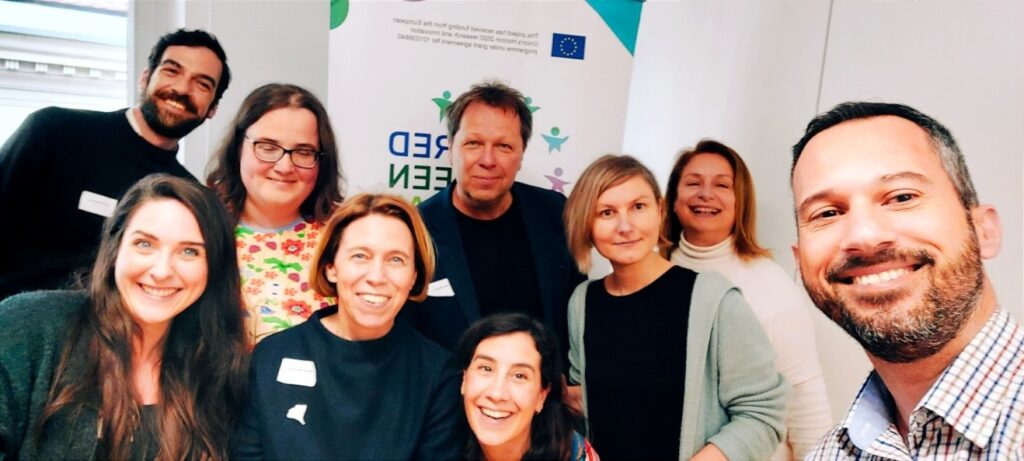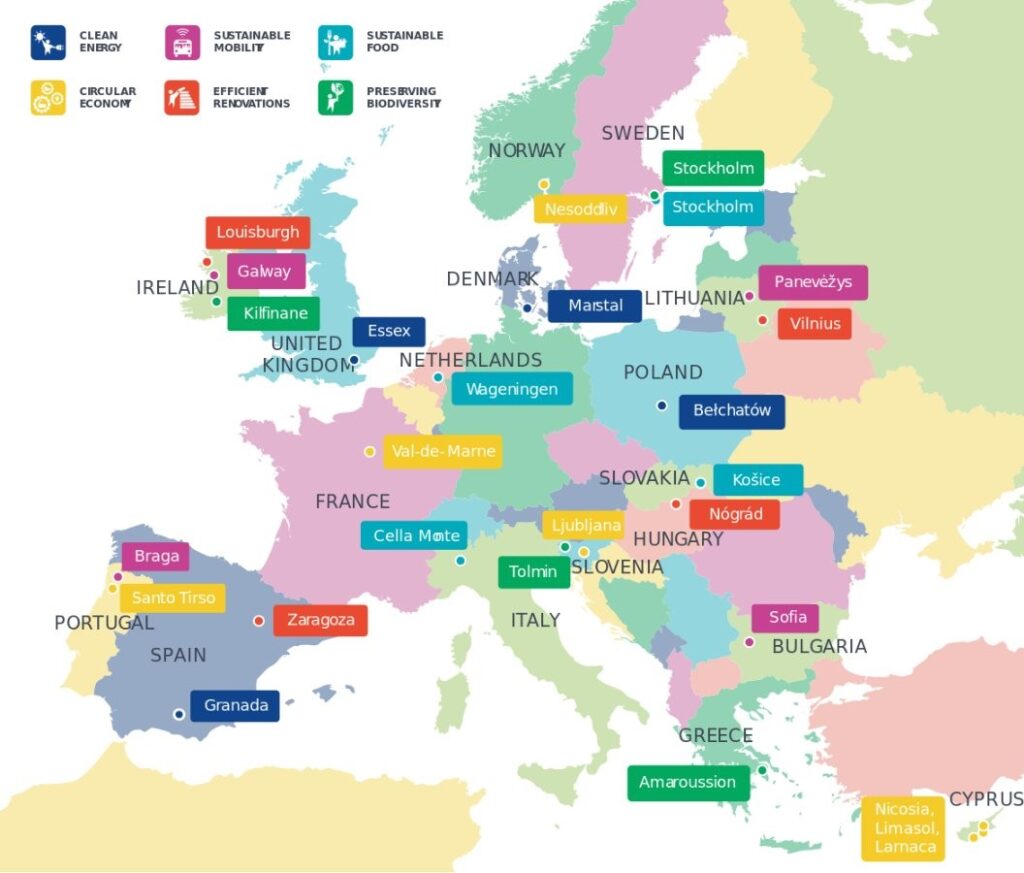Biodiversity and ecosystems provide us with food, health and medicines, materials, recreation, and wellbeing. They filter our air and water, help keep the climate in balance, convert waste back into resources, pollinate and fertilise crops and much more. In 2020, the EU launched its new Biodiversity Strategy aiming to make 30% of Europe protected areas, and restore degraded ecosystems on land and at sea across the whole of Europe. One key aspect to succeed on this ambition is to better understand nature and change the way we relate to biodiversity.
In early 2023, after a rigorous evaluation process, four local partners from four different European areas, were selected out of a total of 84 applicants for the Preserving Biodiversity experiment stream of the SHARED GREEN DEAL project. SHARED GREEN DEAL, funded by the European Union’s Horizon 2020 programme, is structured around lessons from a set of 24 social experiments that target six specific priority Green Deal topics (Clean Energy, Circular Economy, Efficient Renovations, Sustainable Mobility, Sustainable Food, Preserving Biodiversity), all of which contribute to the climate action and zero pollution ambitions of the Green Deal. The social experiments will be delivered across different member states/affiliated countries.
Consortium partners ZRC SAZU, CUAS and of course MIO-ECSDE, will support these ‘final four’ local partners in exploring the different values that people place upon biodiversity in rural and urban areas from a transitions perspective.

SHARED GREEN DEAL partners and local partners during their training in Anton Melik Geographical Institute ZRC SAZU.
The four local partners (Posoški razvojni center (Slovenia), Ballyhoura Development CLG (Ireland), Environment and Health Department, City of Stockholm (Sweden), Municipality of Amaroussion (Greece)) represent local organisations and local governments from across Europe. Everyone met for the first time on the 24th and 25th of April in Ljubljana, Slovenia to discuss all of the details of how over the next year they will contribute to the implementation of the Green Deal priority on putting nature on a path to recovery by 2030; create and strengthen relationships with their community and local institutions; benefit from the learning outcomes that can be adopted by their own processes.

The 24 local partners who joined the SHARED GREEN DEAL project.
The methodology that will be followed in all four locations will be the same: the non-formal community learning approach of Study Circles. Study Circles are a form of adult education, originating in Sweden, that open up space for cooperative learning about different concepts, skills and values. Study Circles help to craft shared solutions and understanding of complex challenges, such as biodiversity loss, by fostering creativity and a sense of community around a topic of mutual interest, as well as transmitting knowledge to participants’ networks of family, colleagues, friends, amongst local decision-makers, and the wider community.
As the causes of the global biodiversity crisis and the opportunities to address them are tightly linked to the ways in which nature is valued, by individuals but also in political and economic decisions at all levels, shifting away from predominant values that currently over-emphasize short term and individual material gains is vital for the success of the post-2020 Global Biodiversity Framework.
It is exciting that we will be working closely with our local partners, exploring together how biodiversity is perceived around Europe and finding solutions on how to reconcile our relationship with nature through the power of social sciences and education.
Read in French here